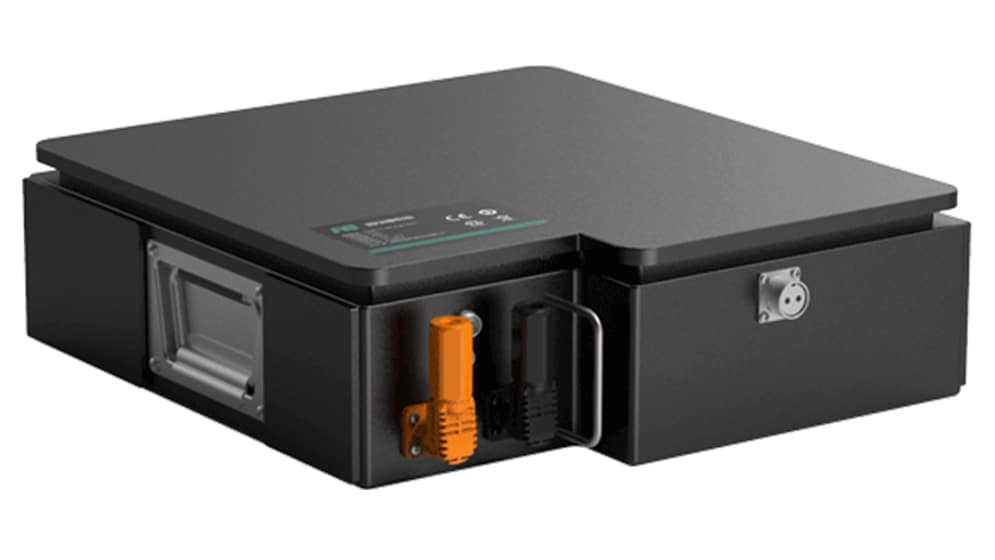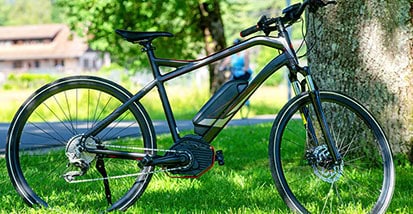- Curved Lithium Polymer battery
- Fast Charge Polymer Battery
- Flexible Polymer Lithium Battery
- Ultra-thin Polymer Battery
/ Blog / Battery Knowledge /
Deep Cycle Batteries: What are They?
23 Dec, 2021
By hoppt

There are many types of batteries, but deep cycle batteries are a specific kind.
A deep-cycle battery allows for repeated discharge and recharge of power. There are many applications where they can be used, such as with solar panels or wind turbines when energy needs to be stored due to irrelevance in production at certain times of day/night or in inclement weather.
What does deep-cycle mean in batteries?
A deep-cycle battery is specifically designed to be sustainably discharged to a shallow power level, typically 20% or less of the battery's total capacity.
This is in contrast to a regular car battery, designed to deliver short bursts of high current to start the car's engine.
This deep-cycle capability makes deep-cycle batteries well suited for powering electric vehicles, such as forklifts, golf carts, and electric boats. It's also common to find deep-cycle batteries in recreational vehicles.
What is the difference between a deep cycle battery and a regular?
The main difference between deep-cycle batteries and regular batteries is that deep-cycle batteries are designed to handle deep discharges repeatedly.
Regular batteries are designed to provide short bursts of power for applications such as cranking the vehicle start motor when starting the vehicle engine.
On the other hand, a deep cycle battery is designed to handle deep discharges repeatedly.
Some great examples of deep cycle batteries in use are electric cars and bicycles. The deep cycle batteries allow the vehicle to run longer and smoothly. The consistency in deep cycle batteries allows them to be a great power source.
Which one is "more powerful"?
At this point, you must be wondering which one of the two deep cycle batteries is more powerful.
Well, deep-cycle batteries are typically rated by their Reserve Capacity, which is the length of time, in minutes, that the battery can sustain a 25-amp discharge at 80 degrees F while maintaining a voltage of over 1.75 volts per cell across the terminals.
Regular batteries are rated in Cold Cranking Amps (CCA), which is the number of amps a battery can deliver for 30 seconds at 0 degrees F without dropping below a voltage of 7.5 volts per cell (for a 12V battery) at the battery terminals.
Although a deep cycle battery may only give 50% of the CCA that a regular battery provides, it still has between 2-3 times the Reserve Capacity of a regular battery.
Which deep cycle battery is best?
When it comes to deep cycle batteries, there is no one-size-fits-all answer.
The best deep cycle battery for you will depend on your specific needs and applications.
In a nutshell, deep cycle technology is applied to different batteries, including Lithium-ion, Flooded and Gel lead batteries, and AGM (Absorbed Glass Mat) batteries.
Li-ion
If you want a lightweight, compact, and maintenance-free battery, Li-ion is your best shot.
It has a great capacity, recharges faster than other batteries, and has a constant voltage. It's, however, costlier than the rest.
The LiFePO4 batteries are used for deed-cycle applications.
Flooded lead-acid
If you want deep-cycle batteries that are less expensive, reliable, and not prone to overcharging damages, go for the flooded lead-acid battery.
But, you will have to maintain them by topping up the water and checking the electrolyte levels regularly. You also need to charge them in a well-ventilated space.
Unfortunately, these batteries don't last for a long time, and you will have to get new deep-cycle batteries within around two-three years.
Gel lead acid
The gel battery is also deep-cycle and maintenance-free. You don't have to worry about spillages, positioning it upright, or even exposure to a moderate amount of heat.
Since this battery needs a special regulator and charger, the price is considerably high.
AGM
This deep-cycle battery is the best all-rounder and can be used for a wide range of applications. It doesn't require any maintenance, is spill-proof and vibration-resistant.
The only downside is that it's prone to overcharging and thus requires a special charger.
Final word
So, now you know a little more about deep-cycle batteries and what to look out for when it comes to deep-cycle batteries. If you consider buying one, you can choose from reliable brands such as Optima, Battle Born, and Weize. Be sure to do your research beforehand to make an informed decision!



